But what sets FFKM apart from other polymers, and how does it maintain its integrity in conditions that would degrade lesser materials?
Read the blog till the end to learn about the FFKM rubber’s properties, its manufacturing process, and more importantly, how to choose the right FFKM material for your specific needs.
What is FFKM Rubber?
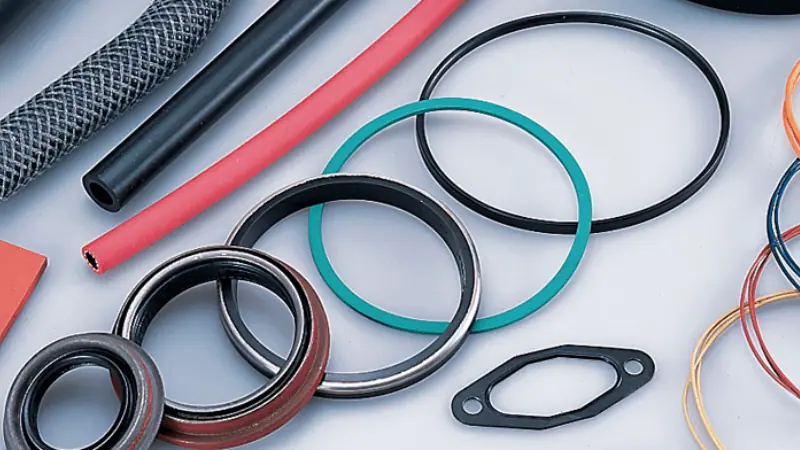
To understand FFKM, you first need to know about fluoroelastomers or FKM. Initially developed during World War II, these materials were created to solve the problem of leaking nitrile seals that affected aircraft.
This necessity paved the way for the invention of fluorinated polymers, known for their strong Fluorine-Carbon bonds. These bonds are the secret behind their outstanding performance at low temperatures and high chemical resistance.
By the late 1950s, the first commercial versions of FKM appeared. These versions, known as type 1s and 2s, boasted a fluorine content jumping significantly from approximately 26.7% to 66% and 68%.
In the world of fluoroelastomers, FFKM represents a leap forward in chemical and temperature resistance. Introduced in the 1960s, FFKM rubber was engineered as a superior alternative to its predecessor, FKM, responding to the need for materials that could endure even more extreme conditions.
With a higher fluorine content than FKM, FFKM offers exceptional resistance to high temperatures and aggressive chemicals. It performs admirably in harsh environments, including those exposed to Oxygen-Plasma for extended periods. Certain FFKM grades can withstand continuous service temperatures up to 327°C (621°F).
Properties of FFKM Rubber
Here are the most notable properties of FFKM rubber that make it exceptional in demanding applications:
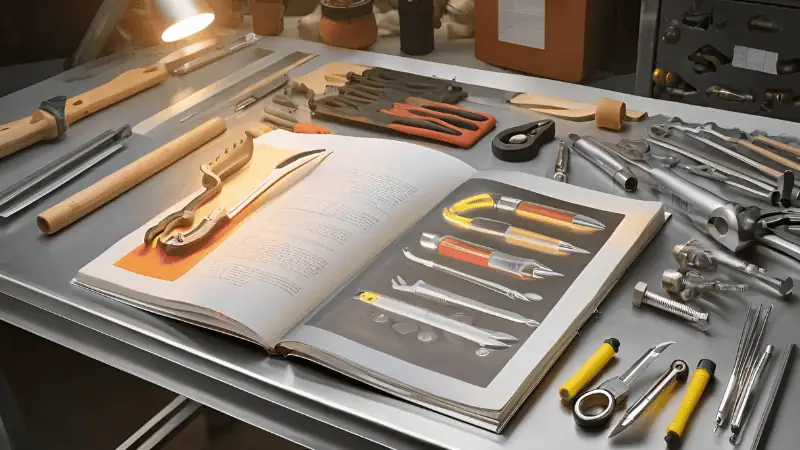
- Unmatched Chemical Resistance: FFKM stands out for its unparalleled resilience against harsh chemicals, including acids, bases, and organics.
- Extreme Temperature Tolerance: It operates efficiently across a broad temperature range, enduring conditions as low as -25°C (-13°F) and as high as 327°C (621°F). This makes it ideal for applications from cryogenics to high-temperature processes.
- Exceptional Durability: With its solid molecular structure, FFKM exhibits superior resistance to wear and tear, providing long service life in applications where other materials fail.
- Excellent Aging Properties: It maintains its properties over time, resisting degradation from UV light, oxygen, and other environmental factors.
- Resistance to Plasma: Unique among elastomers, certain grades of FFKM are resistant to Oxygen-Plasma, making them invaluable in semiconductor manufacturing where plasma environments are common.
Send Your Inquiry Now!
Quality Meets Affordability. Inquire Now for High-Quality Products at Low Volumes.
Applications of FFKM Rubber
The following are some of the primary applications of FFKM rubber, showing its versatility and value across various industries:
- Aerospace: Seals and gaskets in aircraft engines and fuel systems due to their high temperature and chemical resistance.
- Oil and Gas: FDA O-rings and valve seals in drilling and extraction equipment where extreme pressures and corrosive chemicals are prevalent.
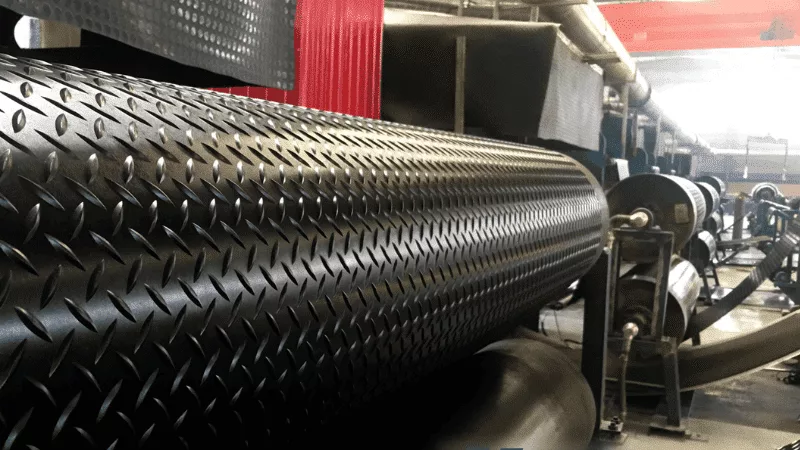
- Semiconductor Manufacturing: Seals and components in semiconductor fabrication equipment resistant to aggressive plasma cleaning processes.
- Pharmaceuticals: Sealing solutions in pharmaceutical production where purity and resistance to harsh cleaning agents are mandatory.
- Chemical Processing: Gaskets and seals in reactors and piping systems that handle highly reactive or corrosive chemicals.
- Food and Beverage Processing: Seals in equipment requiring stringent cleanliness standards and resistance to extreme temperatures and cleaning processes.
Send Your Inquiry Now!
Quality Meets Affordability. Inquire Now for High-Quality Products at Low Volumes.
Grades and Types of FFKM Rubber Explained
The exceptional versatility and properties of FFKM rubber make it a preferred material across a wide range of industrial applications. Here are the common grades of FFKM and their respective properties:
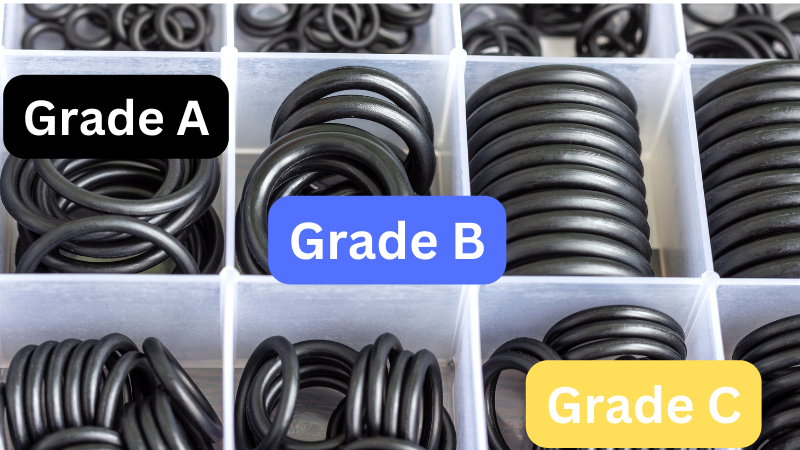
Grade A – Semiconductor Processing Champion
Grade A FFKM offers optimum resistance to acids and showcases good resistance to ketones and alcohol, making it ideally suited for environments where these chemicals are prevalent.
With a temperature operating range from -20°C to +325°C (−4°F to +617°F), it ensures reliability and thermal stability under extreme thermal operating conditions.
The grade presents high tensile strength and medium elongation at break, translating to a material that’s strong and offers a reasonable degree of flexibility.
At 75 Shore A hardness, it strikes a balance between being firm and accommodating minor variances in fitting surfaces. This is an important feature in semiconductor processing applications.
Grade B – Durability in Oil and Gas
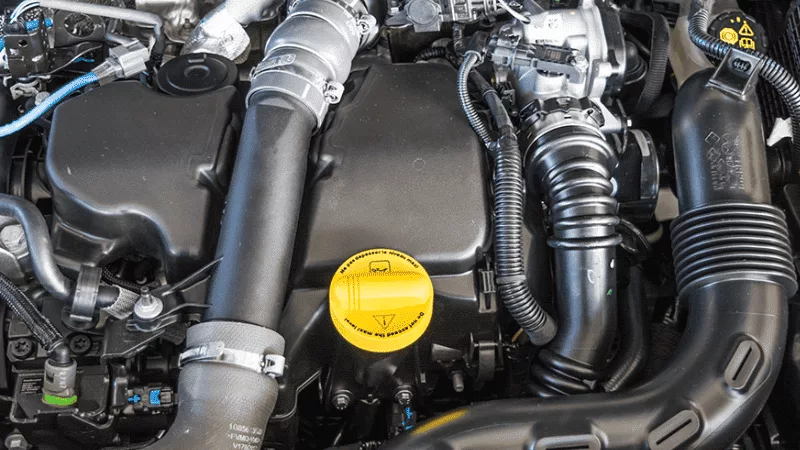
Grade B FFKM rubber is tailored for the oil and gas sector, showing good resistance to most hydrocarbons and fair resistance to esters and ethers.
This makes it suitable for applications exposed to various petrochemical substances. Its temperature range spans from -15°C to +300°C (5°F to +572°F), allowing it to perform in the challenging conditions of oil and gas production.
This grade offers medium tensile strength and high elongation at break—properties that ensure both durability and flexibility. Its 70 Shore A hardness provides resilience against physical wear and tear.
Grade C – Chemical Processing Specialist
Grade C stands out for its superior resistance to amines and moderate resistance to aldehydes, positioning it as an optimal choice for chemical processing environments where these compounds are common.
The grade is operational from -10°C to +250°C (14°F to +482°F), covering a significant temperature spectrum encountered in chemical reactors and processing lines.
It features low tensile strength but very high elongation at break, indicating a material that can stretch considerably without breaking. It is at 65 Shore A hardness, making it the softest among the grades presented, optimizing it for applications requiring maximum flexibility.
The following table shows the different types of FFKM rubber and their key properties:
| FFKM | Temperature Resistance | Key Properties |
|---|
Send Your Inquiry Now!
Quality Meets Affordability. Inquire Now for High-Quality Products at Low Volumes.
Considerations for Choosing FFKM Rubber
To choose the best FFKM rubber for your needs, you have to consider the following factors to ensure optimal performance and compliance in your specific applications.
1. Application Requirements
Understanding the specific needs of your application is the most important part. This involves assessing the chemical compatibility of FFKM rubber with the media it will be exposed to, such as acids, hydrocarbons, or solvents.
The temperature range the rubber must withstand is equally important, whether it involves extreme cold or high-heat scenarios. Additionally, pressure conditions and performance expectations, such as durability and flexibility requirements, should be considered.
2. Regulatory Compliance
The next important step is to ensure that the chosen FFKM rubber meets the necessary regulatory and industry standards. For applications in the food and beverage sector, FFKM materials must comply with FDA (Food and Drug Administration) regulations to guarantee safety and cleanliness.

Similarly, in the oil and gas industry, NORSOK (Norwegian Oil and Gas Association) standards may apply, dictating material performance in harsh environments.
ASTM (American Society for Testing and Materials) specifications provide a benchmark for material properties and quality, ensuring that the FFKM rubber can meet the rigorous demands of various applications.
3. Supplier Qualifications
The quality and reliability of FFKM rubber are as much about the material as they are about the manufacturer. Evaluating the qualifications and expertise of the supplier is important to ensure that you are getting a high-quality product.
Look for suppliers with strong quality control processes in place, necessary certifications, and a proven track record of providing high-grade FFKM solutions.
Reliable suppliers should have extensive knowledge of their materials and be able to guide you in selecting the right grade of FFKM rubber for your specific application, ensuring that it meets both functional and regulatory requirements.
Send Your Inquiry Now!
Quality Meets Affordability. Inquire Now for High-Quality Products at Low Volumes.
Conclusion
In conclusion, FFKM rubber is surely an important component in demanding industrial applications due to its superior chemical resistance and ability to withstand extreme temperatures. It is available in different grades and types, each with its unique properties and applications.
In this blog, we covered the common grades of FFKM rubber, their key properties, and factors to consider when choosing the right FFKM material for your application. Thanks for reading!
Grow Your Business with Eco-Friendly Excellence from Hongju
Discover the future of sustainable manufacturing with Hongju, a famous player in producing eco-friendly silicone products that meet the highest safety standards.
Since 1999, our commitment to environmental excellence and top-notch customer service has positioned us as a leading manufacturer and wholesale supplier in China. Choose Hongju and join us in our mission to achieve business success!